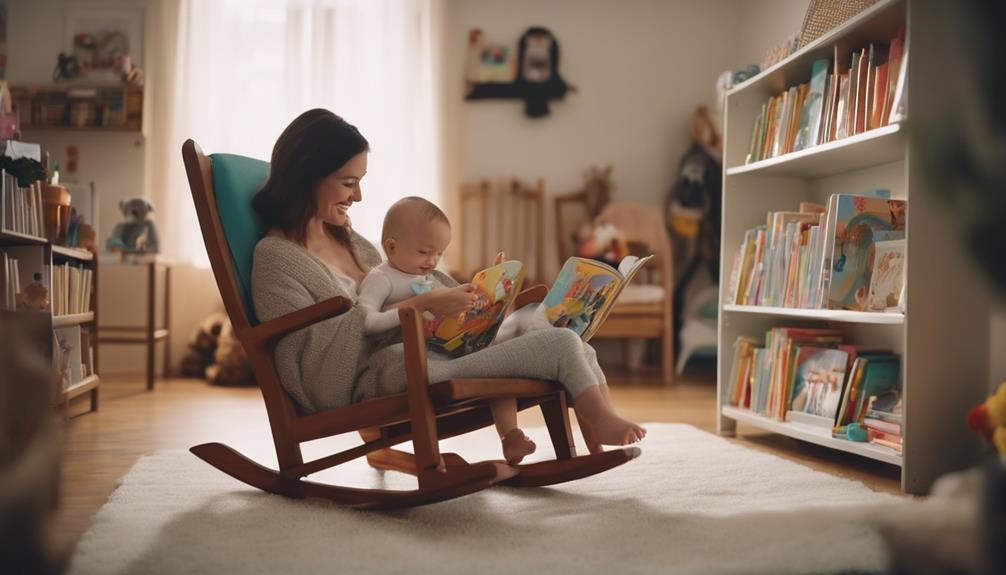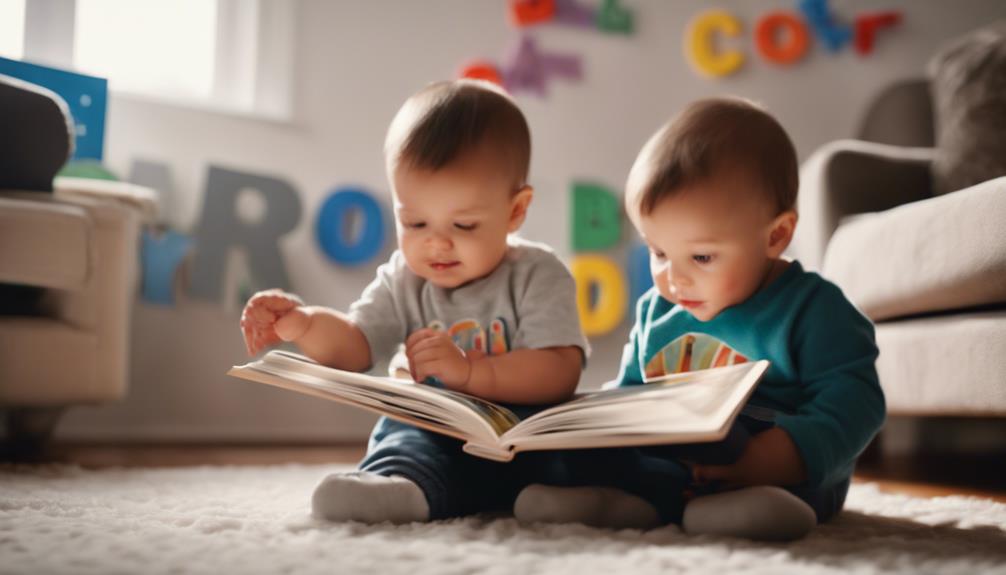Reading to your baby is essential for building a strong connection and establishing the groundwork for their literacy and emotional development. Early reading plays a key role in enhancing brain development, improving language skills, and nurturing emotional well-being. When you read to your baby, you are helping them to develop listening skills, regulate emotions, and foster a love for books. This is a powerful way to support cognitive growth and communication skills, laying the foundation for future learning. Embrace the benefits of reading aloud to enhance your child’s future. Recognizing the significance of early reading will positively impact your baby’s overall development.
Key Takeaways
- Reading to newborns fosters early parent-infant bonding and emotional development.
- Early reading stimulates brain growth, language skills, and a love for reading.
- Promotes cognitive development, listening skills, and a strong foundation for future learning.
- Builds a secure attachment, enhances vocabulary, and cultivates a sense of security.
- Reading to babies nurtures emotional well-being, communication abilities, and cognitive growth.
Importance of Reading to Newborns
Reading to newborns is essential for fostering early parent-infant bonding and communication skills. This practice plays a pivotal role in building a strong foundation for children's early literacy, phonological awareness, and oral language development.
According to a study in the Journal of Developmental and Behavioural Pediatrics, the emotional benefits of reading to infants are immense. The sound of a parent's voice while reading not only soothes the baby but also aids in forming a secure attachment between parent and child.
This bond is critical for children's emotional development, helping them develop healthy relationships, regulate emotions, and build trust and empathy.
Benefits of Early Reading

Stimulating brain growth and fostering strong parent-child bonds, early reading to infants offers a multitude of benefits that lay the groundwork for future learning and cognitive development. Reading to babies not only introduces them to the world of books but also helps in the development of language skills, setting the stage for future language acquisition. This early exposure to reading is vital for building a strong foundation in literacy for children. Positive experiences with books during infancy contribute to enthusiastic readers and a positive attitude towards learning.
| Benefits of Early Reading | |
|---|---|
| Stimulates brain growth | Fosters strong parent-child bonds |
| Develops language skills | Cultivates a love for reading |
| Builds a foundation in literacy | Sets the stage for future learning |
Early reading is essential for children as it paves the way for acquiring essential language skills and a love for reading from an early age. Establishing this foundation early on can have a lasting impact on a child's cognitive development and future educational success.
Promoting Emotional Development

By connecting with your baby through shared stories, you nurture their emotional development and foster a sense of security and closeness in your relationship. Reading to your baby goes beyond words on a page; it's a powerful tool for promoting emotional development and strengthening the parent-child relationship.
Snuggling up with a book creates an environment of bonding, trust, and empathy. This shared experience helps infants develop a sense of self-worth and emotional well-being. Research shows that building a secure attachment through reading contributes to your baby's ability to regulate their emotions and form healthy relationships in the future.
The sound of your voice while reading acts as a comforting presence, aiding in their emotional development and communication skills. In essence, the simple act of reading to your baby can have profound effects on their emotional growth and the bond you share.
Building Language Skills

Developing language skills in infants through exposure to words and stories is key to their cognitive growth and communication abilities. Reading to babies not only introduces them to language sounds and rhythms but also helps in phonological processing, which is vital for distinguishing individual sounds within words. Scientific research has shown that early childhood is a critical period for language development, with reading playing a substantial role in building literacy skills.
| Language Skills Benefits | Importance |
|---|---|
| Phonological Processing | Aids in distinguishing sounds within words, essential for language skills |
| Exposure to Words | Enhances vocabulary and comprehension abilities |
| Literacy Development | Lays the foundation for future reading and writing skills |
Reading aloud to babies from an early age can have a significant impact on their language skills. It is essential to choose age-appropriate books and engage in interactive reading sessions to foster a love for language and storytelling.
Enhancing Cognitive Development

Enhancing cognitive development in infants can be achieved through regular reading sessions that stimulate their growing brains and observation skills. Reading to infants plays a significant role in building a strong foundation for their future learning.
By engaging in reading activities with your baby, you're aiding in their brain growth and promoting language development. Studies have shown that the sound of a parent's voice and colorful illustrations in books help develop listening skills and enhance cognitive abilities in babies.
This early exposure to reading forms the basis for their cognitive skills, shaping their abilities for future learning endeavors. Creating a habit of reading to your infant not only fosters a love for books but also nurtures their cognitive development.
It's essential to recognize the importance of these reading sessions in laying a robust foundation for your baby's cognitive growth and overall development.
Frequently Asked Questions
What Is the Strong Foundation of Reading?
Reading builds a strong foundation by stimulating brain development, fostering emotional bonds, and aiding language acquisition. It sets the stage for future learning and cognitive abilities, making it essential in a baby's early years.
When Should You Start Reading to a Baby?
When should you start reading to a baby? Begin reading as early as infancy to kickstart brain development. Pick alert, calm moments for reading. Opt for high-contrast images in baby books for visual stimulation.
How Much Should You Read to Your Baby?
You should read to your baby for at least 15 minutes a day. This can greatly impact their brain development, enhance language skills, and create a strong foundation for future learning and academic success.
When You Read to Children, What Benefits Do They Gain?
When you read to children, they gain increased language development, cognitive abilities, listening skills, and a love for reading. It fosters strong bonds and promotes emotional, social, and intellectual growth, laying a solid foundation for future literacy skills.
Conclusion
To sum up, reading to your baby is like laying the foundation for a sturdy house. By starting early and regularly, you're ensuring that your child develops strong emotional, language, and cognitive skills.
As Dr. Smith, a renowned child psychologist, emphasized, 'Reading to newborns is vital for their overall development.'
So, grab a book, snuggle up with your little one, and watch as you build a strong foundation for their future success.










